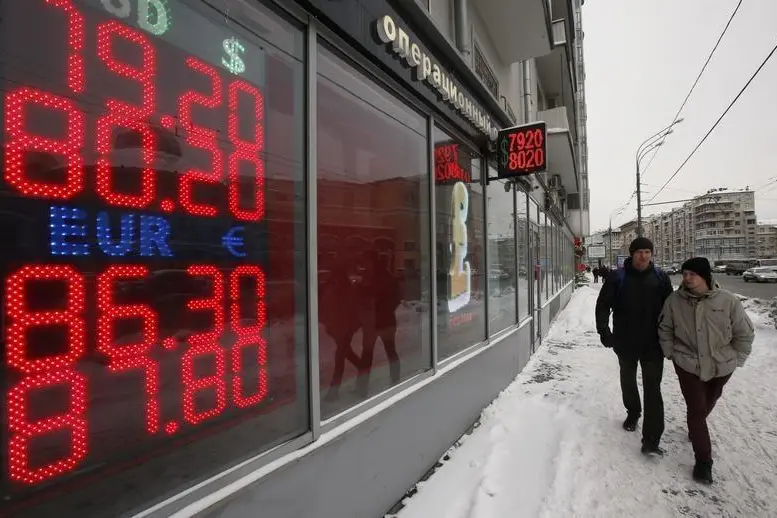PHOTO
(John Kemp is a Reuters market analyst. The views expressed are his own)
By John Kemp
LONDON, July 11 (Reuters) - Continued hedge fund liquidation of former bullish bets on oil and the establishment of new short positions have kept crude prices on the defensive over the last month.
Hedge funds and other money managers cut their bullish bets on crude oil by another 22 million barrels over the seven days ending on July 5.
Hedge funds have cut their net long position in crude futures and options by almost a quarter, from 633 million barrels to 485 million, over the last four weeks.
Hedge fund long positions have been cut by 77 million barrels from 769 million to 693 million barrels, according to the U.S. Commodity Futures Trading Commission and Intercontinental Exchange.
At the same time, short positions jumped by 72 million barrels from 136 million to 208 million barrels, as at least some managers anticipated the reversal in prices.
In the most recent week, most of the adjustment came from the short side of the market, where hedge funds increased short positions by 23 million barrels.
Hedge funds accumulated a record position in crude futures and options between the start of the year and the end of April.
Speculative positioning anticipated and helped accelerate the rebalancing of the oil market during the first half of the year.
But the concentration of positions created a substantial risk of at least a partial reversal once prices stopped rising ("Risks rise as hedge funds placed record bet on oil", Reuters, May 3).
Benchmark Brent crude prices have fallen by more than $5 per barrel, 10 percent, over the last four weeks as positions have been liquidated.
There has been a close correlation between the accumulation and liquidation of hedge fund positions and the movement in crude oil prices since the start of 2015.
The correspondence between hedge fund short positions and the movement in U.S. crude prices has been particularly pronounced
Declining prices have been blamed on various factors including Britain's Brexit referendum as well as concerns about slowing oil demand and an easing of supply interruptions.
In reality, momentum trading, with traders chasing ever-rising prices, was an important contributor to the rise in oil prices between January and May.
Once the momentum was broken, it was highly likely prices would pull back somewhat as traders sought to lock in past gains ("Oil prices under pressure as hedge funds adjust positions", Reuters, Jun 20).
By late May and early June, it was clear the upward momentum in prices had stalled and the risk of reversal began rising ("Oil rally loses momentum", Reuters, May 10).
PRICE FLOOR
Hedge funds still have a relatively large net long position in crude oil futures and options, even after the recent wave of selling, so the current liquidation cycle could still have some way to run.
But the underlying supply-demand balance has tightened significantly since the start of 2016 as a result of continued consumption growth and the impact of supply disruptions and investment cutbacks.
Most analysts now see the market close to balance throughout the remainder of 2016 and 2017 with price risks tilted to the upside towards the end of the period.
The tightening outlook for the supply-demand balance over the next 2-3 years should provide some support for oil prices even if hedge funds continue to cut their positions in the near term.
Nearly all the weakness in oil prices has been concentrated in nearby futures and options contracts, where most hedge fund positions are concentrated, while prices for contracts in 2018 and beyond have held steady.
The price of the Brent calendar strip for 2018 has fallen by just $1 per barrel over the last four weeks while the calendar strip for 2019 is basically unchanged and the strip for 2020 has actually risen by 50 cents.
Provided the U.S. and global economies avoid a recession, the rebalancing process is set to continue, which should limit the near-term downside for oil prices and point to further increases between 2017 and 2019.
(Editing by William Hardy) ((john.kemp@thomsonreuters.com; +44 207 542 9726 and on twitter @JKempEnergy))
By John Kemp
LONDON, July 11 (Reuters) - Continued hedge fund liquidation of former bullish bets on oil and the establishment of new short positions have kept crude prices on the defensive over the last month.
Hedge funds and other money managers cut their bullish bets on crude oil by another 22 million barrels over the seven days ending on July 5.
Hedge funds have cut their net long position in crude futures and options by almost a quarter, from 633 million barrels to 485 million, over the last four weeks.
Hedge fund long positions have been cut by 77 million barrels from 769 million to 693 million barrels, according to the U.S. Commodity Futures Trading Commission and Intercontinental Exchange.
At the same time, short positions jumped by 72 million barrels from 136 million to 208 million barrels, as at least some managers anticipated the reversal in prices.
In the most recent week, most of the adjustment came from the short side of the market, where hedge funds increased short positions by 23 million barrels.
Hedge funds accumulated a record position in crude futures and options between the start of the year and the end of April.
Speculative positioning anticipated and helped accelerate the rebalancing of the oil market during the first half of the year.
But the concentration of positions created a substantial risk of at least a partial reversal once prices stopped rising ("Risks rise as hedge funds placed record bet on oil", Reuters, May 3).
Benchmark Brent crude prices have fallen by more than $5 per barrel, 10 percent, over the last four weeks as positions have been liquidated.
There has been a close correlation between the accumulation and liquidation of hedge fund positions and the movement in crude oil prices since the start of 2015.
The correspondence between hedge fund short positions and the movement in U.S. crude prices has been particularly pronounced
Declining prices have been blamed on various factors including Britain's Brexit referendum as well as concerns about slowing oil demand and an easing of supply interruptions.
In reality, momentum trading, with traders chasing ever-rising prices, was an important contributor to the rise in oil prices between January and May.
Once the momentum was broken, it was highly likely prices would pull back somewhat as traders sought to lock in past gains ("Oil prices under pressure as hedge funds adjust positions", Reuters, Jun 20).
By late May and early June, it was clear the upward momentum in prices had stalled and the risk of reversal began rising ("Oil rally loses momentum", Reuters, May 10).
PRICE FLOOR
Hedge funds still have a relatively large net long position in crude oil futures and options, even after the recent wave of selling, so the current liquidation cycle could still have some way to run.
But the underlying supply-demand balance has tightened significantly since the start of 2016 as a result of continued consumption growth and the impact of supply disruptions and investment cutbacks.
Most analysts now see the market close to balance throughout the remainder of 2016 and 2017 with price risks tilted to the upside towards the end of the period.
The tightening outlook for the supply-demand balance over the next 2-3 years should provide some support for oil prices even if hedge funds continue to cut their positions in the near term.
Nearly all the weakness in oil prices has been concentrated in nearby futures and options contracts, where most hedge fund positions are concentrated, while prices for contracts in 2018 and beyond have held steady.
The price of the Brent calendar strip for 2018 has fallen by just $1 per barrel over the last four weeks while the calendar strip for 2019 is basically unchanged and the strip for 2020 has actually risen by 50 cents.
Provided the U.S. and global economies avoid a recession, the rebalancing process is set to continue, which should limit the near-term downside for oil prices and point to further increases between 2017 and 2019.
(Editing by William Hardy) ((john.kemp@thomsonreuters.com; +44 207 542 9726 and on twitter @JKempEnergy))





















